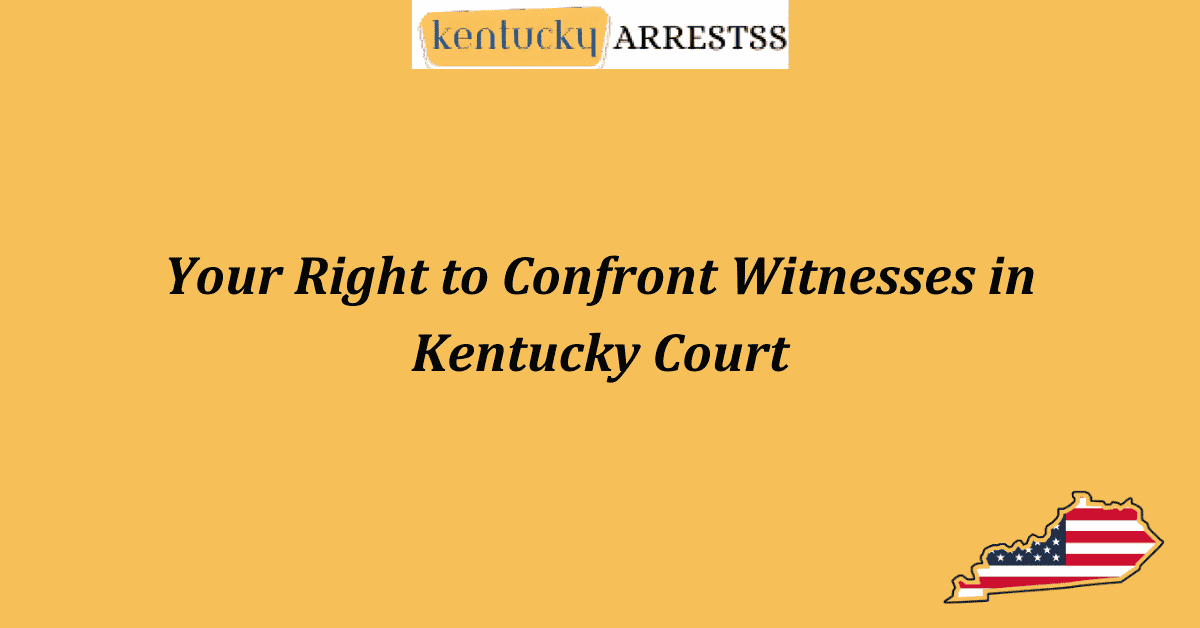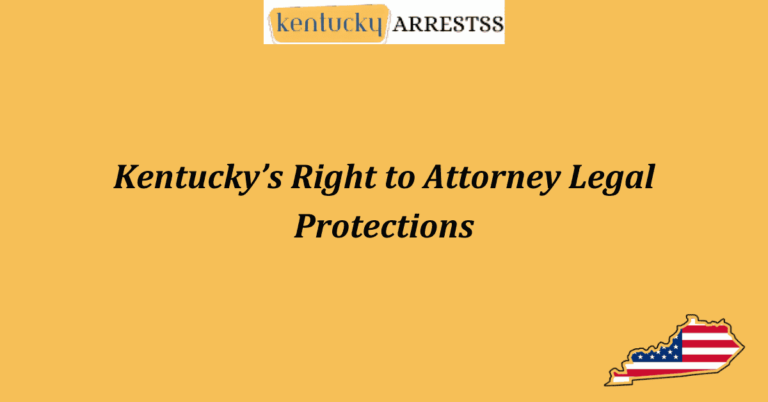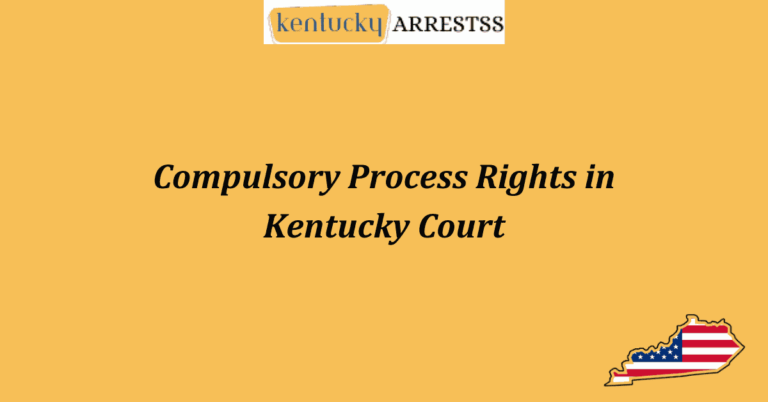Your Right to Confront Witnesses in Kentucky Court
In Kentucky courts, individuals have the fundamental right to confront witnesses against them. This crucial element ensures that the legal process remains fair and transparent for all parties involved. By having the opportunity to directly question those presenting evidence, defendants can challenge testimonies and gather valuable insights to support their case.
This right to confront witnesses in Kentucky court serves as a cornerstone of the justice system, upholding the principles of due process and accountability. It empowers individuals to actively participate in their defense, fostering a balanced and equitable legal environment. By leveraging this right effectively, individuals can navigate the complexities of the legal system with confidence and assertiveness.
Defending Against Accusations
When facing legal accusations in a Kentucky court, one of the most crucial aspects of a fair trial is the ability to confront witnesses. This right, guaranteed by the Sixth Amendment Confrontation Clause, allows the accused to challenge the evidence presented against them. By confronting witnesses, individuals can provide their side of the story, present counterarguments, and ultimately defend themselves against any false accusations.
Challenging Witness Credibility
Confronting witnesses also plays a significant role in challenging their credibility. By cross-examining witnesses, defense attorneys can uncover any inconsistencies or biases in their testimony. This process is essential for ensuring that all evidence presented in court is reliable and truthful. By effectively challenging witness credibility, individuals can strengthen their defense and potentially sway the outcome of the case in their favor.
Ensuring Fairness in Legal Proceedings
The right to confront witnesses is a fundamental aspect of ensuring fairness in legal proceedings. By allowing individuals to directly question those who have provided testimony against them, the legal system upholds principles of transparency and accountability. This process helps to prevent wrongful convictions and ensures that all parties have the opportunity to present their side of the story in a court of law.
Exercising Right to Cross-Examine Witnesses
Cross-examination is a critical component of confronting witnesses in a Kentucky court. This process allows defense attorneys to question witnesses about their statements, motivations, and any potential biases they may have. By exercising the right to cross-examine witnesses, individuals can challenge the prosecution’s case, uncover inconsistencies, and ultimately strengthen their defense strategy.
Safeguarding Rights in the Legal System
The right to confront witnesses is a cornerstone of the legal system, designed to safeguard the rights of individuals accused of crimes. By providing the opportunity to directly question witnesses, the legal system ensures that all evidence presented is rigorously tested and scrutinized. This process helps to prevent miscarriages of justice and uphold the principles of due process for all individuals involved in legal proceedings.
Presenting Evidence Effectively in Court
Confronting witnesses also allows individuals to present evidence effectively in court. By challenging witness testimony and credibility, individuals can bolster their own case and provide additional support for their defense. This process is essential for ensuring that all relevant information is considered by the court and that the truth is ultimately revealed through a comprehensive examination of the facts.
Advocating for Innocence Through Witness Confrontation
Confronting witnesses is a powerful tool for advocating for innocence in a Kentucky court. By directly questioning those who have provided testimony against them, individuals can uncover inconsistencies, biases, and inaccuracies that may support their innocence. This process allows individuals to challenge the prosecution’s case effectively and present a compelling defense that highlights their innocence and the flaws in the evidence presented against them.
Navigating Legal Proceedings with Confidence
By understanding the importance of confronting witnesses in a Kentucky court, individuals can navigate legal proceedings with confidence. Knowing their rights to cross-examine witnesses, challenge testimony, and present evidence effectively, individuals can approach their defense strategy with a sense of empowerment and assurance. By leveraging the right to confront witnesses, individuals can advocate for their innocence, challenge the prosecution’s case, and ultimately seek a fair and just outcome in the legal system.
Frequently Asked Questions
Our FAQ section aims to provide detailed information about Your Right to Confront Witnesses in Kentucky Court. Below are some common questions that individuals may have regarding this topic.
What is the right to confront witnesses in Kentucky court?
The right to confront witnesses in Kentucky court, also known as the Confrontation Clause, is a fundamental right guaranteed by the Sixth Amendment of the United States Constitution. This right allows individuals accused of a crime to confront and cross-examine witnesses testifying against them in court.
Why is the right to confront witnesses important?
The right to confront witnesses is crucial in ensuring a fair trial and protecting the accused’s constitutional rights. By allowing the accused to question witnesses, it helps to uncover inconsistencies in testimony, challenge the credibility of witnesses, and prevent false accusations.
Are there any limitations to the right to confront witnesses?
While the right to confront witnesses is fundamental, there are certain limitations. For example, in cases involving child witnesses or victims of domestic violence, special accommodations may be made to protect their well-being while still upholding the defendant’s right to confront witnesses.
How does the right to confront witnesses apply in Kentucky court?
In Kentucky court, the right to confront witnesses is upheld through the rules of evidence and criminal procedure. Defendants have the opportunity to cross-examine witnesses during trial, challenge their credibility, and present their own evidence to refute witness testimony.
What happens if a witness refuses to testify in court?
If a witness refuses to testify in court, the prosecution may face challenges in presenting its case. However, there are legal procedures in place to compel witnesses to testify, such as issuing subpoenas or granting immunity. The court may also consider the witness’s refusal when evaluating the strength of the prosecution’s case.
Can witnesses be cross-examined by the defense attorney?
Yes, in Kentucky court, witnesses can be cross-examined by the defense attorney as part of the defendant’s right to confront witnesses. Cross-examination allows the defense to challenge the witness’s testimony, credibility, and motives, ultimately helping to uncover the truth and ensure a fair trial.






